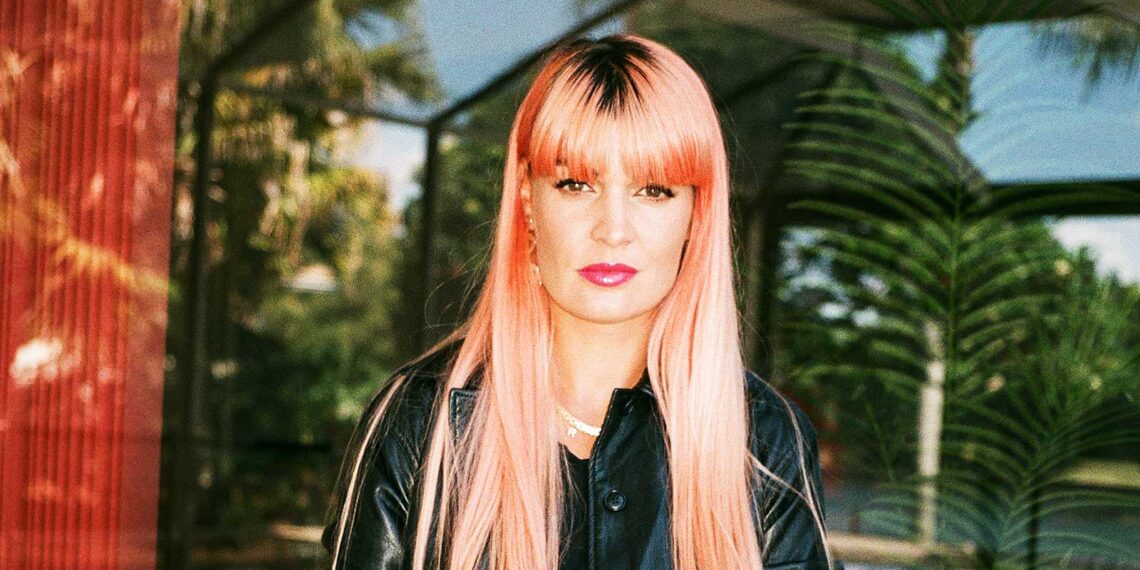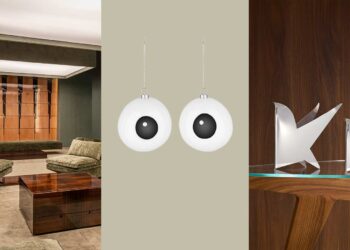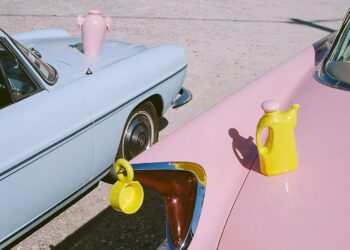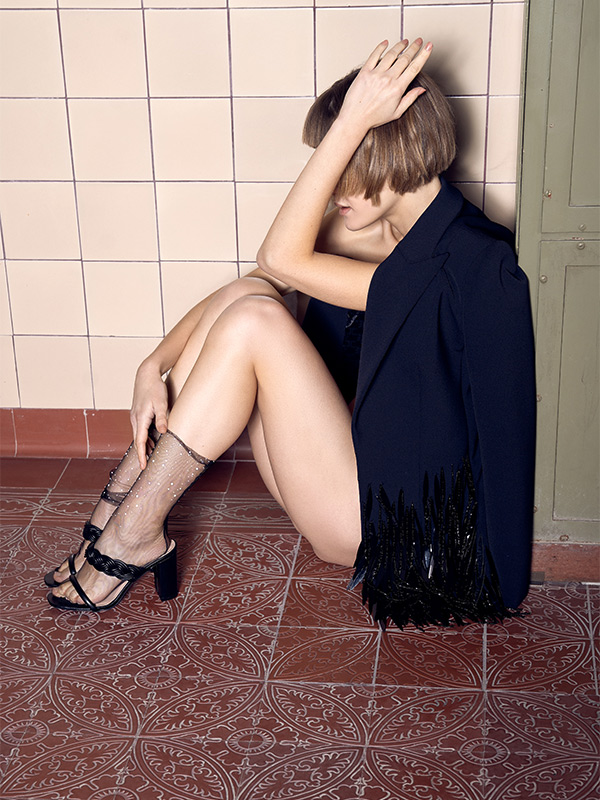Away with the Persian carpet and in with underlays that compete with the art on the wall. Sula uses stardust, big cats or cacti, which also look good on kitchen furniture or towels. The woman behind the Zurich label stands out in the crowd at least as much as her designs – not least because of her orange hair. It’s been ten years since Nadja Stäubli put her vision on paper – and has been filling our homes with beauty ever since.
FACES: How would you describe Sula to someone who doesn’t know your label?
Nadja Stäubli: Sula is a label for interior objects and textiles. Our designs are colorful and timeless and are intended to make our customers happy. We are a “local” company, but we sell internationally all over the world.
F: Formerly Schönstaub, now Sula: What happened?
NS: There were two reasons for the rebranding. Firstly, we have been involved in a legal dispute for years with a German company that also has the word “schön” in its name. This company took the dispute further after we had won it in Switzerland. The whole thing simply costs us too much money – money that we would rather invest in our label than in this legal dispute. Secondly, we want to expand internationally, and the name Schoenstaub does not work so well in other languages and in other countries.
F: What’s behind the new name?
NS: The new name is a tribute to my late mother Ursula, who was an amazing woman. Sula is short for Ursula and is now the new name of our label. I loved the name Schoenstaub very much, which is why it was particularly difficult for me to find an alternative. However, Sula immediately felt organic.
F: You and your label are already ten years old. What were the highlights and what were the biggest stumbling blocks?
NS: The biggest highlight for me is the fact that a label has emerged from a bachelor’s thesis that I can use to pay employees and whose products our customers live with – that makes me extremely proud. There are always new stumbling blocks, depending on the size of the company and our growth. The legal battle over our name was absolutely annoying and, in my opinion, totally unnecessary. Now I’m really looking forward to the time ahead – we’re planning to expand and want to get involved in other areas of business. Our Studio Sula is also interesting, where we as designers and producers offer our network to customers.
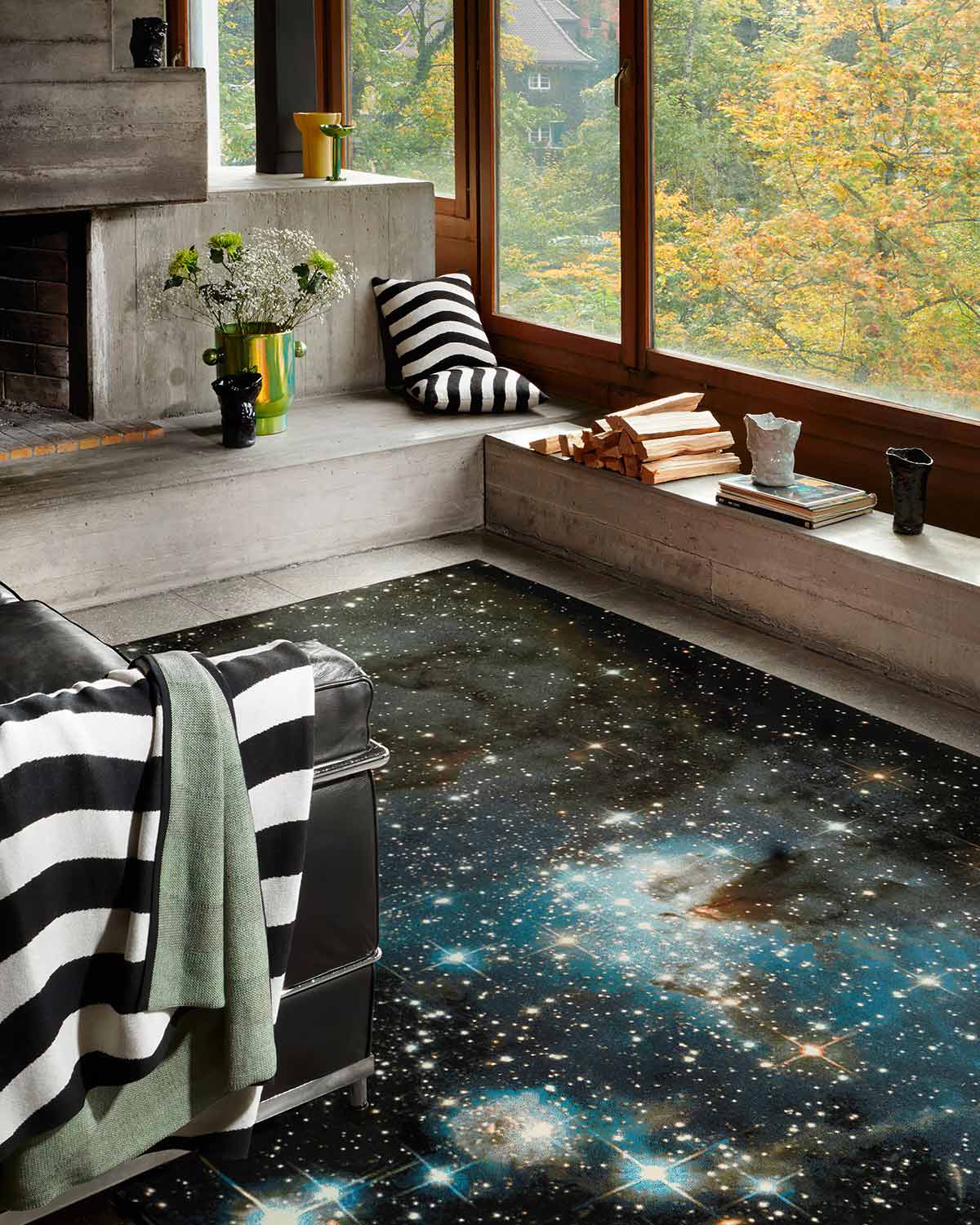
You first have to learn to be a boss
F: What are you like as a boss?
NS: I am certainly not a “born” boss. (laughs) You have to learn to be a boss first, and I come from the creative side. That is also the reason why I have set up my team in such a way that we all complement each other. Sula would not be possible without my employees, we need each other.
F: How have consumer demands changed in recent years? How do you notice that?
NS: Customers like our story and realize that we are authentic. I think that is extremely important today. People want to own special products and celebrate the motto: less is more.
F: Do you have a favorite piece from your range?
NS: It changes every season and depends on what products we have just launched. I really like our chopping boards at the moment. However, I am particularly grateful for the Nebula collection, the first ever – it made everything possible. My heart beats for our collaborations, of course, as I love working with other creatives.
F: Sustainability and fair production have arrived in fashion. What is the situation in the Living sector?
NS : That’s definitely an issue, depending on the bubble you live in.
F: How do you manage to keep your feet on the ground in a lifestyle world where everything is always beautiful?
NS: I think life and the world are hard enough. That’s why I try to make our customers happy with the products they have at home. Besides, I’ve always been a down-to-earth flyer. (laughs) Dream big and stay real.
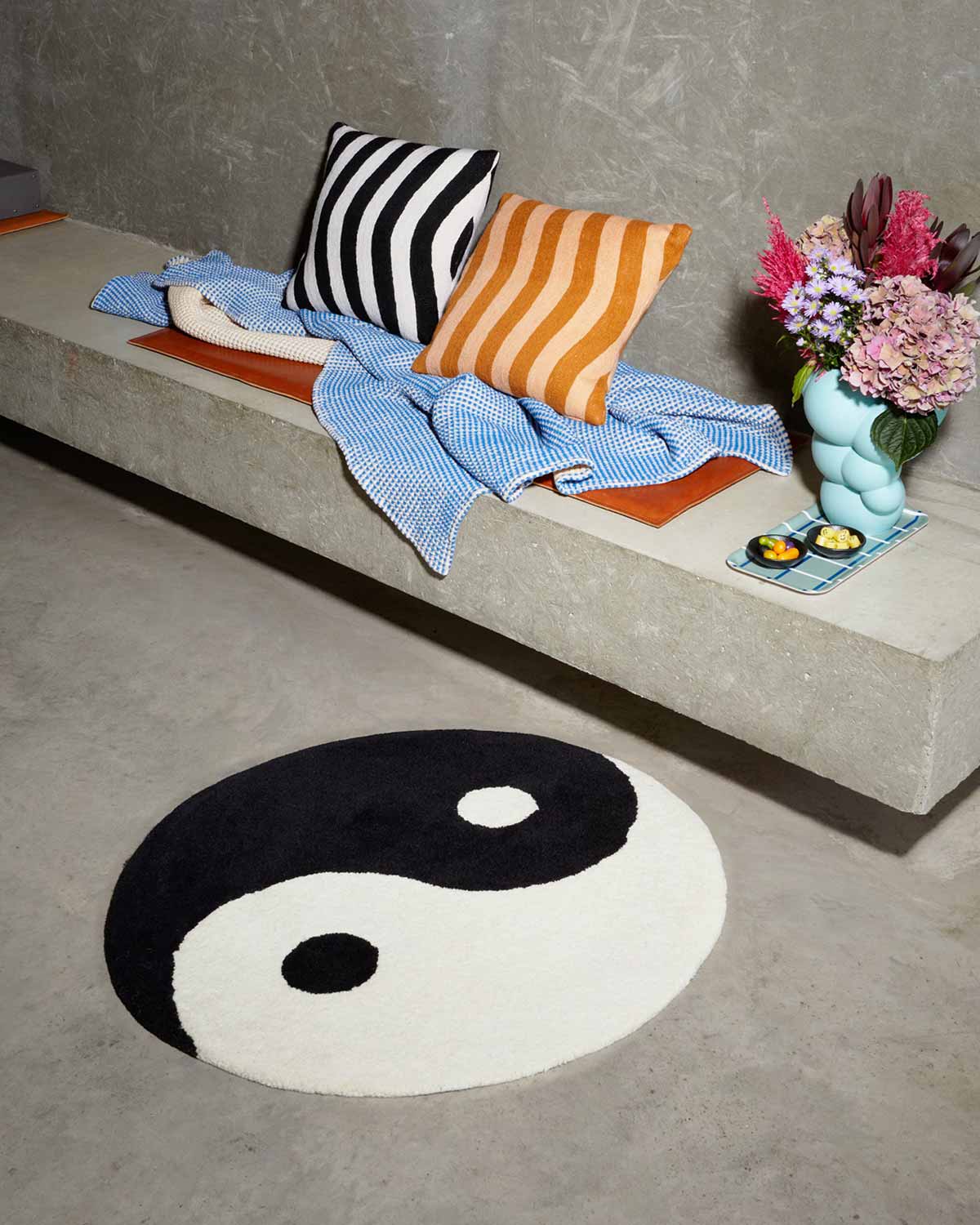
Things must continue even after the Inital idea
F: What’s the hardest part about starting, running and growing your own label?
NS: That it continues after the initial idea. It’s much harder than you think to deliver, sell and keep the numbers up for years. When I started working on my label, Instagram was still completely unimportant. Today, it is essential to use a large number of channels simultaneously, which requires constant further development. Then there is the balance between work and family – often everything comes together at the same time.
F: Where are Sula’s furniture and accessories made, and do you know all the hands these pieces pass through?
NS: Depending on the product, we have selected the best producers for us. From Sweden to the USA, quality is extremely important to us. You can also see this when you buy our products. We invest a lot of time and energy in the search for suitable partners.
When an apartment becomes a home
F: New apartment, new furniture. Where and with what do you start?
NS: With a bed and a sofa. And good music.
F: When and where do you feel at home?
NS: With my family and friends – no matter where in the world.
F: What makes a good home?
NS: That the energy is right. You can tell by your gut feeling. And security, of course.
F: What do you think about minimalists who don’t own an apartment or furniture and also generally own as few material things as possible?
NS: I admire them. Unfortunately, I am not like that, but I am absolutely fascinated by this way of life and find it incredibly contemporary.
F: What are you saving for?
NS: For traveling. In my opinion, I have seen far too little so far and would like to catch up.
F: What would you like to receive as a gift?
NS: Homemade objects and art.
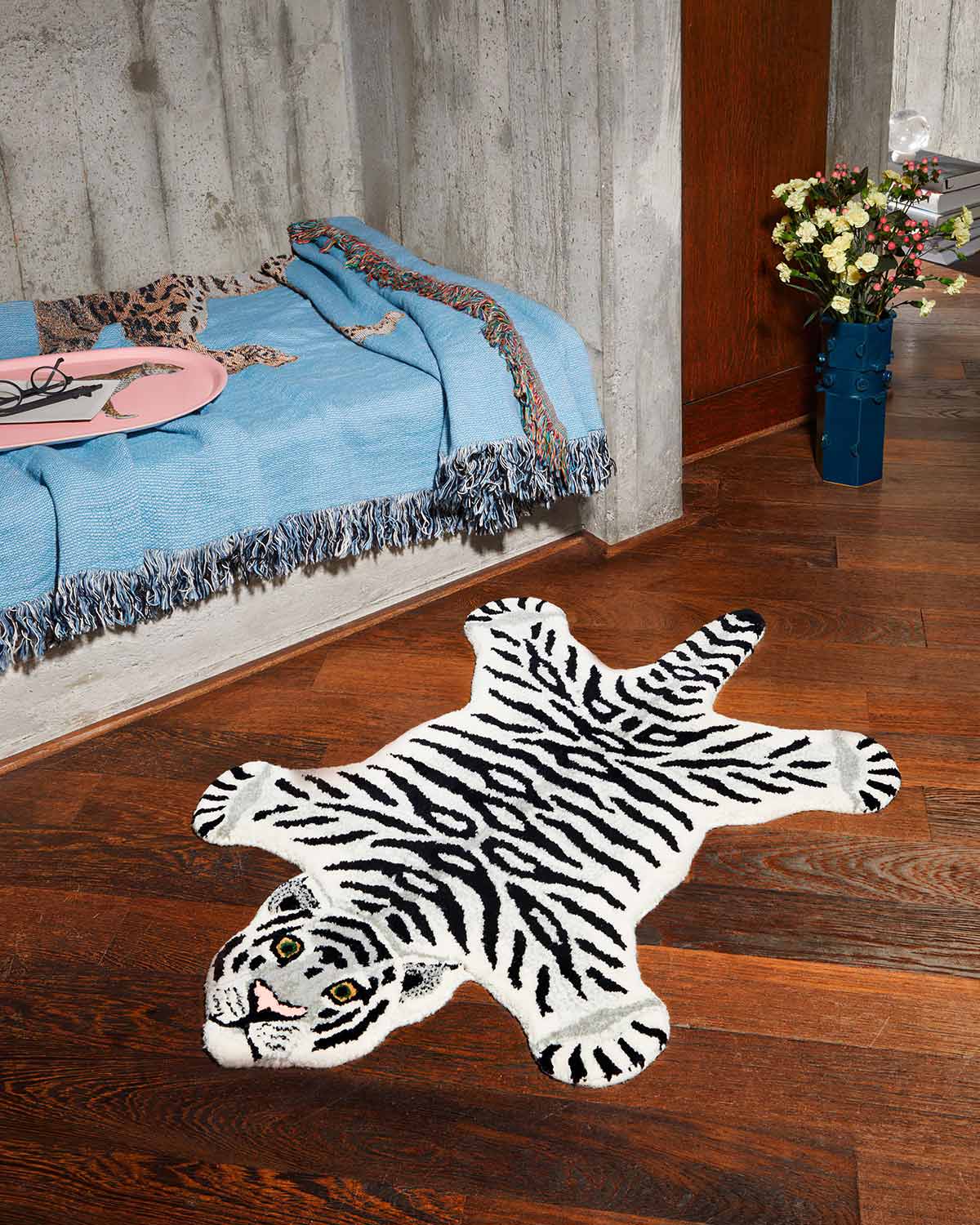
The home as a window to the soul
F: When was the last time you were really excited about someone else’s apartment and why?
NS: Again and again. I photograph a lot of home stories for Sula, and I have the privilege of documenting the great homes of my friends. It’s super exciting to see how people live and what they live with.
F: Whose apartment would you like to take a peek into and why?
NS: I would have loved to have seen the great villas that Slim Aaron photographed. I would also be interested in Rihanna’s houses. I generally love walking around cities at night and looking into apartments.
F: What is the most valuable piece in your home?
NS: A mirror and my dining table. But if there was a fire, I would save my parents’ photo collection.
F: What do your friends say about your apartment?
NS: They like it, I think. (laughs)
F: Does everyone have to have lived alone at least once in their life?
NS: You don’t have to do much, but I thought it was great to live alone for a few years after my time in a shared flat. It is an absolute luxury and a good experience to learn to be alone.
F: What’s the worst interior mistake you can make?
NS: In my opinion, there are no mistakes. But I would never buy a whole “set” of anything.
Designer part or not?
F: Which piece of designer furniture have you grown tired of and why?
NS: It changes all the time. However, I think you should have respect for classics, as it takes a lot to become one in the first place.
F: What trip inspired you the most and what for?
NS: A past trip to Colombia and Japan. Both countries fascinated me. About 20 years ago, I went away for a few months for the first time – to Costa Rica, without a smartphone. That was super great. And of course my exchange semester in New York City.
F: What would you like to be praised for?
NS: For my heart and my character. And my sense of humor.
F: Which craft fascinates you the most and why?
NS: I am very fascinated by carpentry and ceramics, but also by fashion design, music production and cooking. I appreciate all craftsmanship.
F: What has been the most rewarding encounter you’ve had through your job?
NS: Every situation in which I see people living on our carpets. How their children grow up with it and play on it. I also really appreciate the luxury of doing something that I really enjoy.
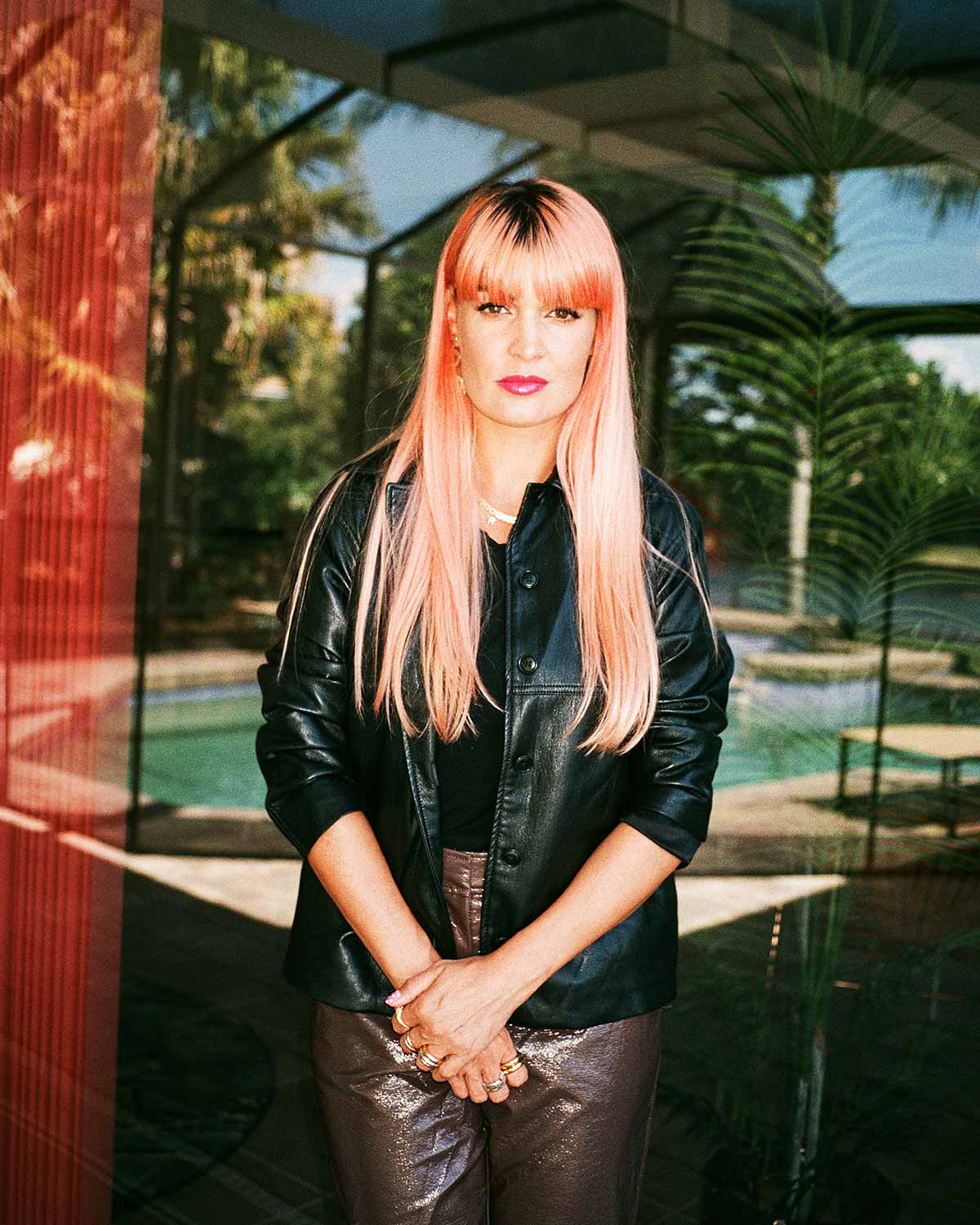
Sula
Schönstaub turns ten – and to mark the anniversary, there’s not only chocolate cake and confetti, but also a new name. Sula is now emblazoned on the carpets, towels and vases that make hip homes even hipper. It all started with a final thesis at university, from which Nadja Stäubli not only spun the idea for her own label, but also the framework for her own label. Sula makes living more colorful and individual and thus hits the nerve of the anti-Ikea generation.
sulaworld.com
See Nadja Stäubli in action and visit her here in her showroom.
Still looking for the right chair for your home? We have a few suggestions. You can find the most beautiful designer chairs here.


